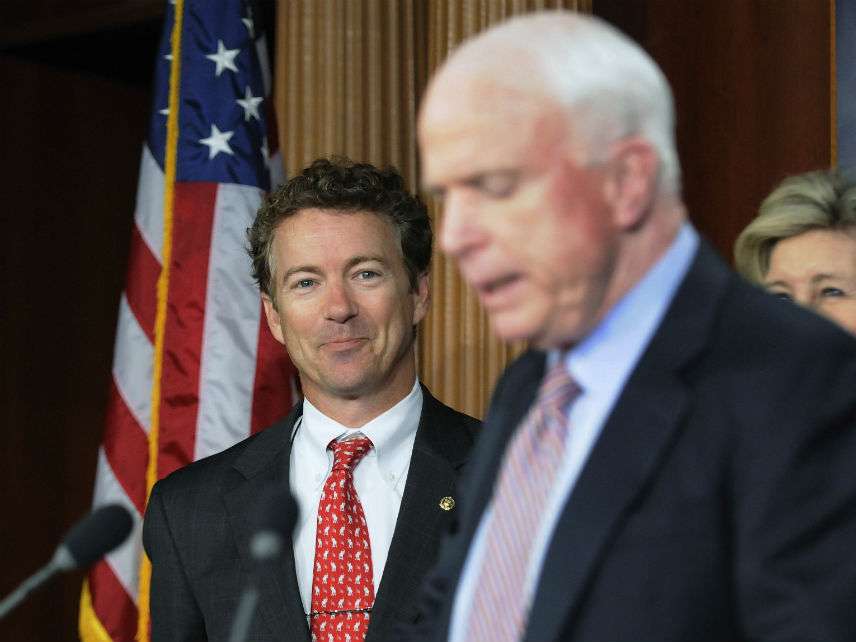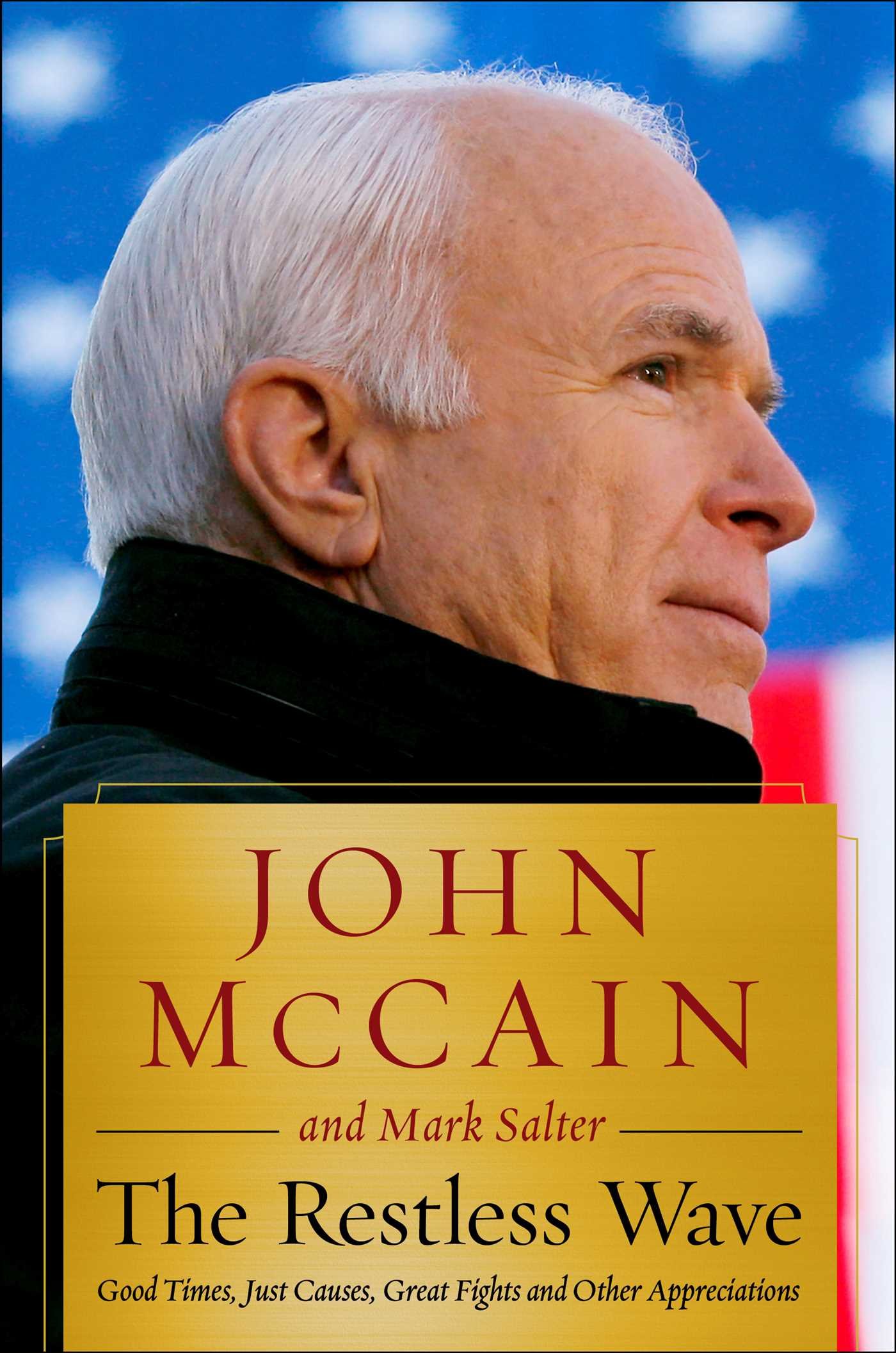John McCain: It 'Wasn't Incorrect' to Say Rand Paul Was 'Working for Vladimir Putin'
The Arizona senator goes out shooting against the Paul family, even as he and the Kentucky senator make common cause on Gina Haspel.

In March 2017, Sen. Rand Paul (R-Ky.) successfully delayed for 11 days Senate ratification of Montenegro's entry into the North Atlantic Treaty Organization (NATO). America's leading advocate for NATO expansion, Sen. John McCain (R-Ariz.) responded by accusing Paul of "achieving the objectives of Vladimir Putin…of trying to dismember this small country."
"I repeat again," McCain said then, remarkably. "The senator from Kentucky is now working for Vladimir Putin."
Perhaps even more remarkably, though not very surprisingly, McCain is unapologetic about that accusation in his valedictory new memoir, The Restless Wave: Good Times, Just Causes, Great Fights, and Other Appreciations. "Senator Paul didn't appreciate that, and I'll grant that it was an intemperate thing to say," McCain writes, with co-author Mark Salter. "But it wasn't incorrect. He might not have worked wittingly for Putin, but he was doing exactly what the Russian wanted done."
McCain and Paul have a long history of mutual antagonism on foreign policy, including NATO expansion. Paul single-handedly blocked a 2011 unanimous consent resolution to hurry the ex-Soviet Republic of Georgia into the alliance, a McCain goal for the past decade. The Arizonan has been fond of calling his fellow Senate Foreign Relations Committee member a "wacko bird"; the Kentuckian has returned the favor with the phrase "stale and moss-covered." (Both have periodically walked the adjectives back.)
The Restless Wave is filled with good-spirited, cross-ideological appreciations for Teddy Kennedy, Barack Obama, Joe Biden, Chris Murphy, and so on. Not so for the Paul family:

* Early in the book, McCain recounts with some bemusement the end of the 2008 GOP presidential primary season after chief rival Mitt Romney had dropped out: "[Mike] Huckabee remained in the race, as did libertarian Ron Paul [Rand Paul's father]. Huckabee won a few more southern contests but formally withdrew in March after I had accumulated enough delegates to secure the nomination. Paul stayed in until June, when he suspended his campaign having never won a single primary or caucus, but having made a point of some kind to his passionate followers."
* In one of many passages bemoaning the rise of conspiracy theories in political discourse, McCain writes: "Rand Paul believed the unsubstantiated charge that I had met with representatives of ISIS during my brief visit to Syria, and he said so publicly."
This is indeed true: Paul expressed that belief in a September 2014 Daily Beast interview, after which the claim was serially debunked. McCain leaves out that Paul soon apologized to him on the Senate floor.
* Near the end of the book, McCain recounts how following his dramatic no-vote on Obamacare repeal last July, he had hoped to get his defense authorization bill done the next day, before flying off for a round of chemotherapy. "But Rand Paul decided we wouldn't start debate on the defense bill that morning or any other morning before I went back to Arizona for treatment and the Senate recessed for the summer. We needed unanimous consent to bring up the bill, and he objected. I'm not sure why. Maybe he resented my vote the night before. Maybe he had another reason. It's hard to tell."
Paul's spokesman Sergio Gor actually explained the reasoning that same day: "Sen. Rand Paul requested two bipartisan amendments, one on ending indefinite detention and one on AUMFs….He looks forward to working with leadership and the committee to get this done soon."
Despite their long history of often disagreeable disagreement, Paul and McCain in recent days have joined together in their opposition to Gina Haspel's nomination to be director of the Central Intelligence Agency, and for the same reason: her complicity in the George W. Bush–era torture program. "John McCain and I have had many spirited disagreements but we actually do agree on torture and Gina Haspel," Paul told Fox News host Neil Cavuto yesterday.
And when Cavuto asked Paul whether he would fire White House aide Kelly Sadler for reportedly saying that McCain's no-vote "doesn't matter" because he was "dying anyway," Paul said he would do so if she "worked for me." The remarks, he said, were "obviously inappropriate and should not have been said."


Show Comments (148)